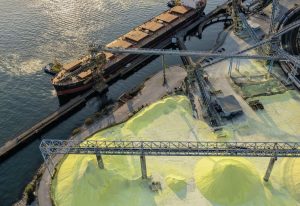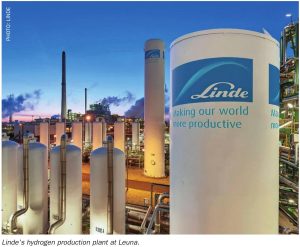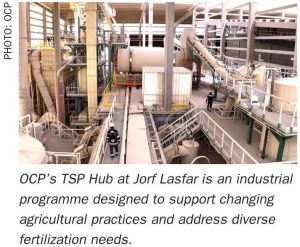
North America’s sulphur industry
Sulphur output in North America continues to decline due to refinery closures and conversions at the same time that acid demand is increasing for metals processing projects.

Sulphur output in North America continues to decline due to refinery closures and conversions at the same time that acid demand is increasing for metals processing projects.

thyssenkrupp Uhde has completed the pre-FEED (Front-End Engineering Design) phase for the Portland Renewable Fuels Project in collaboration with HAMR Energy. The project, located in Victoria, Australia, will use biomass residues and renewable electricity to produce green methanol that can be used as a low carbon liquid fuel to power shipping and aviation.

The Deendayal Port Authority (DPA), Kandla, has issued a tender for the engineering, procurement and construction (EPC) contract to build India’s first port-based bio-methanol plant. The 3,500 t/a plant will use oxy-steam gasification technology to convert biomass into bio-methanol. The scope covers design, engineering, procurement, construction, commissioning, and product certification, with bidders required to outline plant life, warranties, capital expenditure, and operating costs. The move follows DPA’s earlier call in May for turnkey proposals for a larger integrated plant of over 15,000 t/a, and its February 2025 agreement with Bapu’s Shipping Jamnagar Pvt. Ltd. to develop India’s first bio-methanol bunkering facility, including a dedicated bunker barge, at Kandla Port.

BHP is now expecting first potash production from stage one of its Jansen mega project in Saskatchewan, Canada, in mid-2027.

The sale of Mosaic Potassio Mineração Ltda (MPM) to VL Mineração Ltda was announced on 13th August.

OCP can now produce more than five million tonnes of triple superphosphate (TSP) annually.

Pursell Agri-Tech launched Stampede, its new NPK fertilizer range, at the Southwestern Fertilizer Conference (SWFC) in Nashville in July.

KBR been awarded a front-end engineering design (FEED) contract by Iraq's KAR Electrical Power Production Trading (KEPPT).

Russia’s Ammoni JSC has received funding approval for the Ammonia-2 plant at its Mendeleevsk complex in Tatarstan.

The Mosaic Company opened a new fertilizer distribution plant in Palmeirante, Tocantins, Brazil, in July.